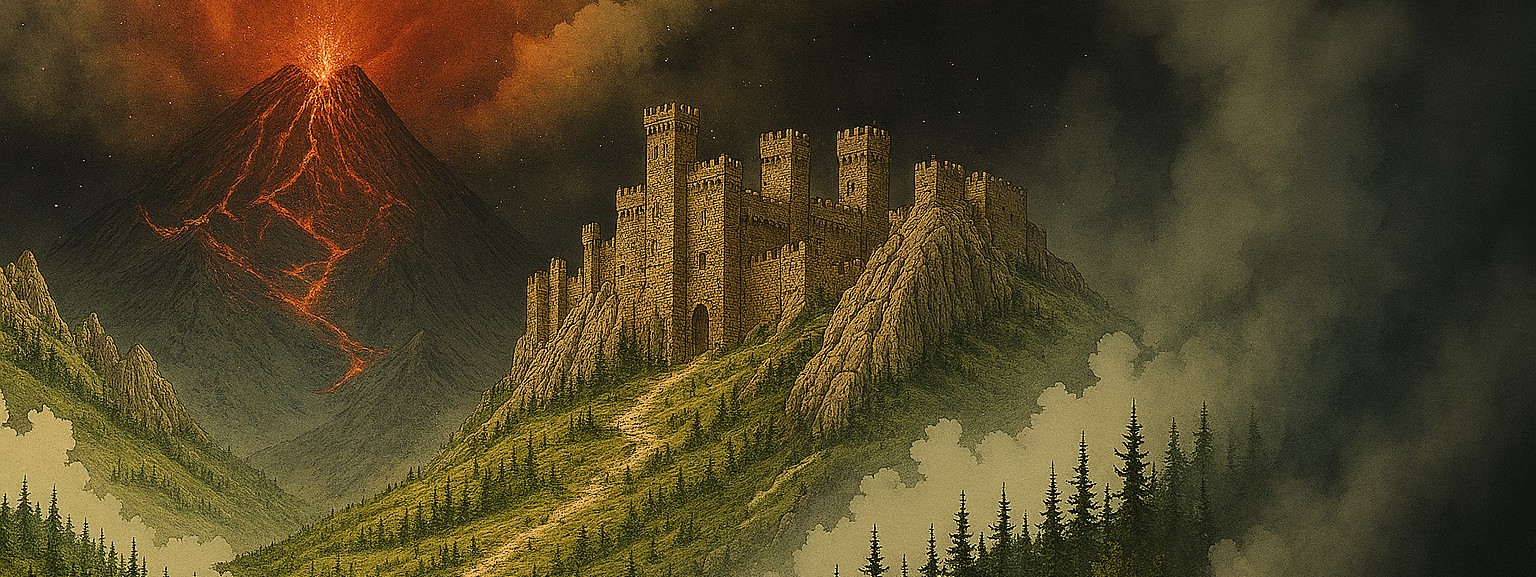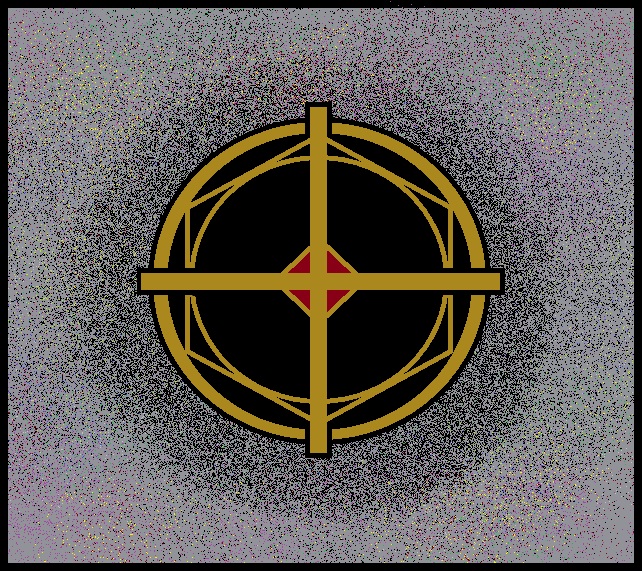The Pre-Age
Dan Pylandellan
As Mortals evolved, their settlements expanded in power and size, conflicts emerged among the independent groups. The Gods intervened, supporting select factions and shielding their creations from each other, which ultimately restored peace to Andreval. Contrary to the mortals' expectations that the Gods would depart, they stayed, continuing to watch over and safeguard their charges.
Magnificent palaces were built in honour of the Gods, and cities boasting technological wonders sprang up around them. These cities brimmed with golden cogs, pipes, gears, and wonderous stained glass windows in towering buildings so tall that the clouds concealed their summits. These grand cities, known collectivly as Societies, each developed unique cultures and revered their own Patron Gods or Deities. The principal societies constitute the foundations of the major religions that exist today: Skallin, Theonic, Triadic, and Kul'diash.
Some gods united to forge even greater Societies, while others chose solitude, assisting Mortals and thus accelerating their advancement. Yet, their tangible presence in Andreval negated the necessity for Power], particularly Essance. Although Sorcery was present, it lacked potency and acceptance, as it implied renouncing the gods and their principles, revering only the Spirits—an act deemed highly disrespectful by many. Those who practiced Power were branded as outcasts, untrustworthy, and dishonorable. In the Pre-Age, wielding Power was seen as a direct affront to the Gods, prompting them to pursue these individuals when possible. The Order of Inalstan, dedicated hunters, sought and pursued these Sorcerers, known as Druids.
Dragons wielded Power akin to the Druids' but garnered much respect. Unlike the secular Druids, Dragons served the Gods and revered them as the mortals did. They functioned as divine emissaries, safeguarding humanity, who in turn began to venerate them as the children of the Gods. Some lesser Dragons collaborated with other mortals in their urban centres and factories, taking on roles akin to furnaces and cranes, thus propelling mechanical advancement.
But not all groups worshipped Gods nor were they Druids, they became known as the Splinter Revolutions. They did not have patron gods, nor did they follow the Spirits instead they completly trusted in their technological innovations, relying on them to combat the societies with their Gods. They created technological weapons of mass destrcution powerful enough to counter that of the God's Dragons. Yet rarly did they engage in combat prefering instead to retreat in their large mobile cities known as the Locomotives preventing any loss of life or war.
While conflicts were always possible, with danger and death likely beyond the sanctuary of the cities due to the extremely hostile land, there existed a fragile peace. Many people could live their entire lives without witnessing conflict, and many did. Generally, opposing groups such as the Druids, Splinters, and Societies remained apart, forever at odds yet content to coexist peacefully unless they encroached upon each other's territories.
The metal Architects dragged me through their village of iron like an animal, yet I could only stare in awe and confusion. Great huts stood with no foundations. Massive clouds rose from these huts and inside I could hear the roar of the wrathful Dragons. The whole place was unnatural and everywhere echoed a strange sound like a dulled thunder. The people there wore strange things - it was not enough to cover huts in metal but their bodies also some had swords for arms while others were painted in bright colours like huge meadows of flowers. Some creature stood among them, it was no mortal nor Spirit their legs were metal, their arms, and their face. Many of people stared at me as I was paraded past, some had wonder on their eyes while others looked at me with worry like I was the monster. How could they call me that when something so unnatural, so wrong, walked amonst them. It was at this moment I made my escape. Calling upon the Spirits I gave them the will to retake this metal prison and that was all the distraction I needed. I knocked out the guards and sprinted my way out of that metal village, that wretched place. Those tribes and their metal villages are no place for our kind my friends, we should forever stay clear of them!Beyond the cities lay a wild, untamed wilderness, where the Corruption from the failures of Lesser Species creation continued to spread. Yet, in some areas, healing began with the aid of the Druids. This region, known as Gle'say and it was cleansed of the Corruption that had threatened many. Druids gathered there, and through their faith in the Spirits, they managed to quell the region's earthquakes. When other Societies learned of this seemingly pure region, envy took hold, and they dispatched The Order of Inalstan to investigate. Upon arrival, they found nothing but land teeming with corrupted beasts poised to attack at any moment, and great quakes that shook the ground. They left, defeated, returning to their societies. Yet, they held onto the belief that the Druids were still there, concealed by the Spirits forever purifying the land, and the societies refused to give up.A retelling of an escaped Druid prisoner to his tribe translated from ancient Gonian in the year 1.201
7-12-11.2242
Related articlces:
The Gods of Talrak
Mortals of Talrak
The ancient Societies
Skallin
Theonic
Triadic
Kul'diash
An introduction to Power
Essance
Sorcery
Spirits
The Order of Inalstan
Druids
Dragon
Splinter Revolutions
Patron Gods
Locomotives
Gonian
Corruption
The Lesser Species
Architects
Gle'say



